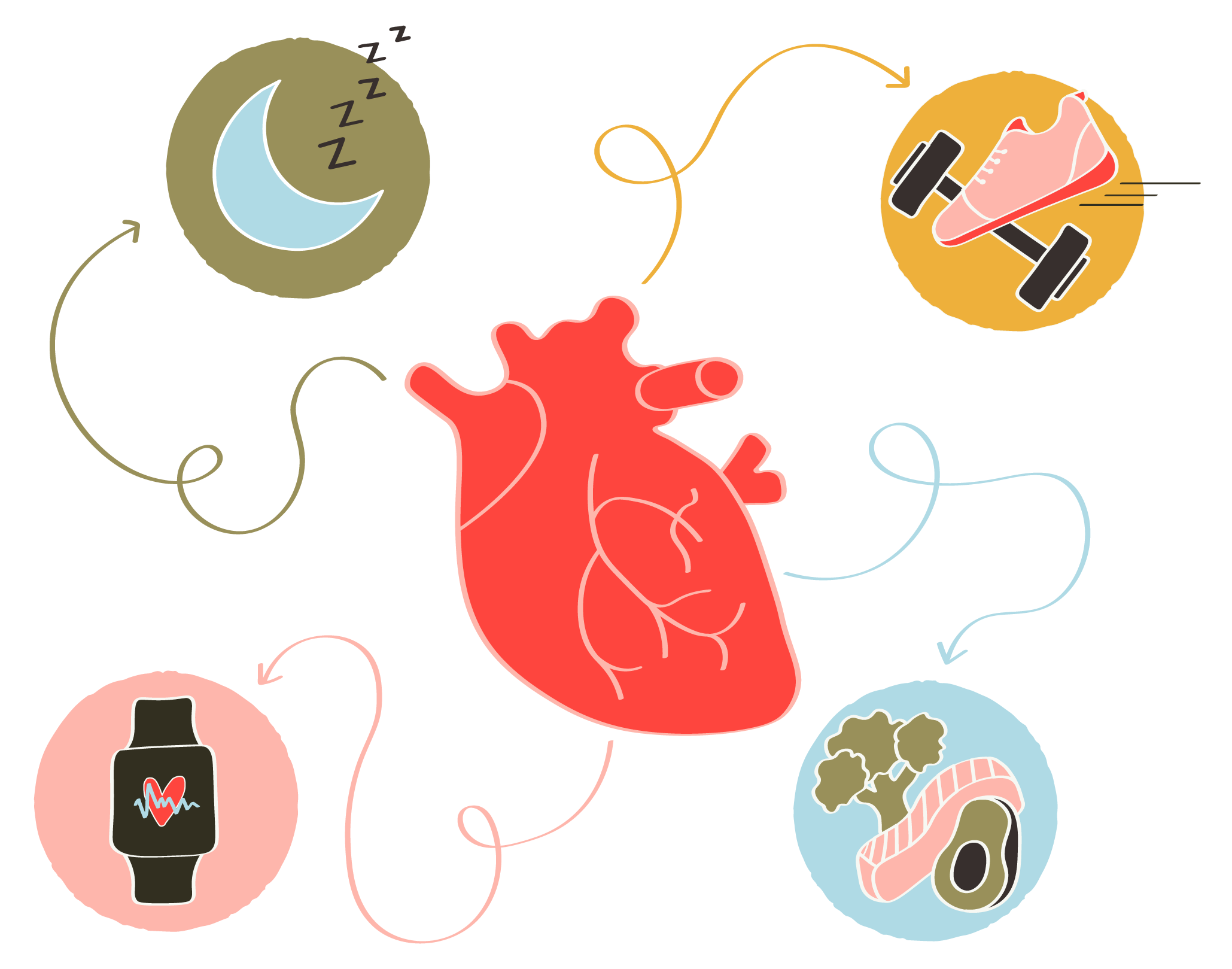Betties, February is the month of love (for others, yes, but especially for ourselves!), so it feels like the perfect time to address heart health. As women+, taking care of our bodies is a completely different ballgame! We have different hormones at play, dietary needs, and other factors to consider when it comes to heart health. It’s American Heart Month, so let’s talk about it.
How does the heart work?
The heart is a “master organ” of the body – think of the heart as the engine, the brain as the conductor and our blood as the train. Our brains control involuntary processes, like pumping blood to provide oxygen for all of our organs.
Without our heart, our organs cannot function properly. It is the essential engine that carries ‘packages’ – hormones, oxygen, nutrients and even waste products to be broken down. Our arteries and veins make up the ‘train;’ they transport blood to and from the heart, respectively, carrying all of the ‘packages.’ Our bodies need this engine to power all of its functions!
What is heart disease?
Heart disease develops when the arteries cannot deliver enough oxygen to the heart. It can happen in any artery that transports blood to the heart, however, we use heart disease as an umbrella term for several types of heart conditions, such as coronary artery disease and heart attack.
Heart disease is the leading cause of death for women in the United States. According to the CDC, about one in five American women die from heart disease than any other cause. It can be caused by plaque buildup, also known as atherosclerosis, smoking, which causes the blood vessels in your heart to contract and decrease blood flow.
Lack of physical activity, diabetes and even your genes can lead to heart disease. Developing heart health begins in your youth and adopting a healthy lifestyle + choices early on is crucial to optimizing heart health. We know, Betties: during a month of happiness and lots of love, it can be hard to have these conversations – that’s why we’re here to make it easier! Loving our hearts and taking care of them is essential in benefitting our overall health.
How do I prevent heart disease?

Your heart is a muscle responsible for pumping blood around your body, so the key is to ‘make it work.’ Like other muscles, it needs to be exercised and trained to be its very strongest. As you know, there is no one-size-fits-all plan to prevent heart disease, but there are measurable lifestyle adjustments you can make now so your future self will thank you!
EXERCISE
The American Heart Association recommends 150 minutes (about 2 and a half hours) of moderate physical activity a week. You can break this up into increments, 20-30 minutes a day will get you there. Regular cardiovascular exercise helps strengthen this muscle and keep blood flowing to all parts of your body. Exercise also reduces stress; when our bodies are under stress for long periods of time. By making exercise a part of your routine, you reduce cortisol levels and your risk of developing heart disease. Win-win, Betties!
DIET
Maintaining a healthy diet is foundational for promoting healthy heart function.
Eat the rainbow! Not all natural food options are created equal, the Westernized diet focuses a lot on starchy vegetables and high sugar fruits. Eating the full rainbow of fruits and vegetables ensures you get the widest variety of vitamins and minerals possible.
Be carb-smart! Carbs are not the enemy, but they are not all created equal. Eat complex and whole grains that contain fiber such as wheat, oats, corn, barley, oatmeal, brown/ wild rice, popcorn and quinoa.
Get your protein! There are lots of different ways to get protein beyond meat! Mix it up and try swapping your steak for fish, nuts, lentils, beans, or lean, skinless poultry. Plant-based proteins skip saturated fats and tend to come with other beneficial nutrients like fiber, omega-3 fatty acids, minerals and vitamins.
Ditch the process! “Processed” simply refers to foods as they were altered from their natural state for consumption. Most foods found in grocery store aisles contain additives to sustain shelf life. But canned items, processed deli meats or cheeses, sweets and frozen meals containing dyes, sugar, oil, preservatives are less optimal for your shelf life. It’s true, these foods are yummy and inevitable in a busy Betty lifestyle, but keep an eye on labels. Read the nutrient label to check the sodium, sugar, trans, and saturated fats. The recommendation for salt intake is less than 1,500 mg a day, and trans-fat intake should be 0%.
LIFESTYLE
If you smoke, try to quit. If you never have, don’t start, Betties. Your chance of having a heart attack doubles if you smoke as few as one to four cigarettes per day. Even if you don’t smoke, secondhand exposure can increase your risk.
Clean up your sleep hygiene. We know that poor sleep habits contribute to elevated stress levels, not-so-great nutrition choices and prevent us from moving our bodies – all of which work against keeping your heart healthy!
Follow recommendations for routine screening blood pressure and cholesterol. These two measurements are indicators of heart health. High blood pressure means that your heart is overworking itself to pump blood, and a high cholesterol level can result in fatty deposits in your blood vessels.
![]()
Remember, when your heart is being loved and taken care of, your heart will love you back! Your heart health is a HUGE indicator for your overall health: if your heart is working properly, so are other parts of your body.
Taking ownership of your health now is the best way to protect yourself from heart disease later, Betties.
Book a Betty’s Care-Anywhere appointment to talk with a provider about your individual risk factors + how to implement a heart-healthy lifestyle that addresses your unique makeup.







Join the conversation